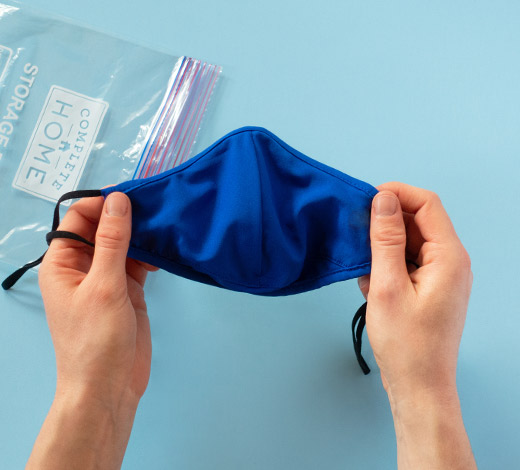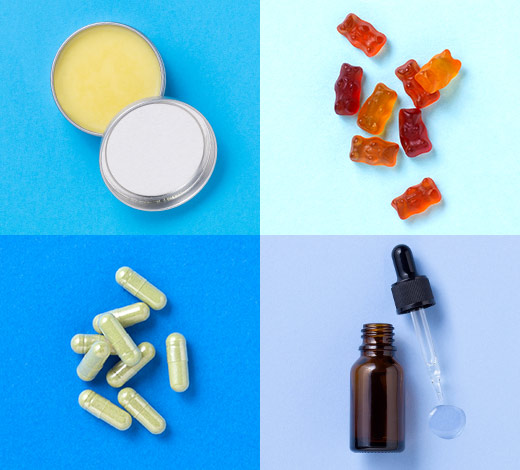Bloating is an uncomfortable fullness, pressure or swelling in your stomach. Some people describe it as a feeling like they have an inflated balloon or trapped gas in their abdomen. A bloated stomach most often occurs after eating a meal. Here, you’ll learn more about bloating, including what causes bloating and if there are certain foods that don’t make you bloated.
What causes bloating?
Bloating is common, occurring in 20-30% of the general population and in up to 96% of people with irritable bowel syndrome. It tends to be caused by gas in your digestive tract. The gas can occur for many reasons, including swallowing too much air, consuming foods that cause gas, and having certain health issues. Medical conditions that can cause bloating include:
- Irritable bowel syndrome (IBS): If you have bloating and gas after eating, you may have IBS. This is a group of symptoms that affect how gas moves through your intestines. It causes bloating, pain, cramping and diarrhea.
- Constipation: Bacteria can ferment on stool that sits in your colon. This can lead to increased gas and bloating.
- Gastroparesis: In this motility issue, the muscles along the digestive tract do not work properly, which causes the stomach to empty too slowly. This can lead to bloating, nausea and bowel blockage.
- Small intestine bacterial overgrowth (SIBO): SIBO is marked by an increase or change in the bacteria in your small intestine, leading to bloating, diarrhea and weight loss. SIBO often occurs with other conditions, such as IBS.
- Gastrointestinal reflux disease (GERD): In GERD, the contents of your stomach flow backwards up into the small intestine. This can cause burping and bloating.
- Problems digesting carbohydrates. Your stomach and small intestine aren’t always able to digest all of the carbohydrates you eat. These undigested carbohydrates can travel to your large intestine, where bacteria break down them down and produce gas.
What foods make you bloated?
Bloating and gas can be caused by consuming certain foods. While foods that cause bloating differ between people, the following foods, drinks and products can cause excess gas, which can lead to bloating.
| Type of Food, Beverage or Product | Examples |
|---|---|
| Vegetables | Asparagus, broccoli, Brussels sprouts, cabbage, cauliflower, mushrooms and onions |
| Fruits | Apples, peaches and pears |
| Beans | Black beans, navy beans and pinto beans |
| Dairy products | Milk, cheese, ice cream and yogurt |
| Whole grain | Whole wheat and bran |
| Processed foods that contain lactose | Bread, cereal and salad dressings |
| Beverages | Carbonated drinks with high-fructose corn syrup, such as soda, apple or pear juice, fruit punch and milk |
| Sugar-free products that contain sugar alcohols as a sugar substitute, such as mannitol, sorbitol or xylitol | Candy or gum |
| Additives or supplements that contain certain types of fiber | Insulin and oligosaccharide are types of fiber that may be added to processed foods to replace fat or found in some supplements. |
How to manage bloating
Bloating treatment depends on the underlying cause. For instance, if you have bloating due to SIBO, your health care provider may prescribe an antibiotic. Bloating due to celiac disease means avoiding products that contain gluten, and bloating from lactose intolerance means eliminating dairy products from your diet. For occasional bloating, treatment may include lifestyle and dietary changes or over-the-counter (OTC) medications.
Lifestyle changes
Everyone swallows air when they eat and drink, but swallowing too much air can lead to belching and bloating. Changing certain behaviors can help reduce the amount of air you take in:
- Eat and drink more slowly.
- Don’t chew gum or suck on hard candy.
- Avoid carbonated or fizzy beverages.
- Don’t smoke. If you smoke, get help to quit.
- Make sure your dentures fit tightly enough, if you wear dentures.
Getting enough exercise and improving your posture may also help improve bloating in some people.
Dietary changes
Avoiding or limiting foods that cause gas may help reduce bloating after eating. To figure out the exact foods that cause you to feel bloated, consider keeping a food and symptom journal. Log each food you eat and note your symptoms afterwards. This can identify your personal triggers and help you find foods that don’t make you bloated.
OTC medications, such as antacids, can also decrease bloating and gas in some cases. Although other commonly-used remedies, such as simethicone, activated charcoal or probiotics haven’t been proven to help, some people feel that these products work. Talk to your health care provider or pharmacist before trying any OTC medicines for bloating.
If you often have bloating after eating and changing your habits doesn’t help, talk to your health care provider. They can figure out the cause of your bloating and recommend a treatment plan.
Published on October 18, 2019
Sources:
“Overview of intestinal gas and bloating,” UpToDate. Web. 6 Sept 2019. https://www.uptodate.com/contents/overview-of-intestinal-gas-and-bloating
“Symptoms and causes of gas in the digestive tract,” National Institute of Diabetes and Digestive and Kidney Diseases. Web. 6 Sept 2019. https://www.niddk.nih.gov/health-information/digestive-diseases/gas-digestive-tract/symptoms-causes
“Bloating: causes and prevention tips,” Johns Hopkins Medicine. Web. 6 Sept 2019. https://www.hopkinsmedicine.org/health/wellness-and-prevention/bloating-causes-and-prevention-tips
“Understanding bloating and distension,” International Foundation for Gastrointestinal Disorders. Web. 6 Sept 2019. https://www.iffgd.org/symptoms-causes/bloating-and-distension.html
“Overview of intestinal gas and bloating” UpToDate. Web 11 September 2019. https://www.uptodate.com/contents/overview-of-intestinal-gas-and-bloating?search=bloating&source=search_result&selectedTitle=1~150&usage_type=default&display_rank=1


